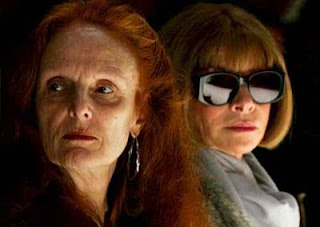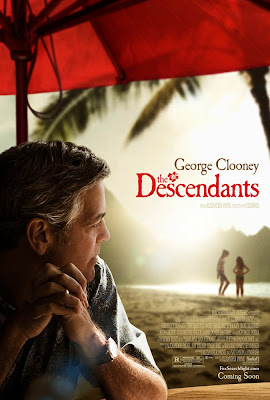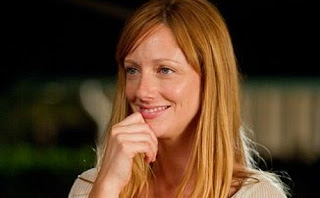 |
| Grace Coddington and Anna Wintour |
The radical notion that women like good movies
 |
| Grace Coddington and Anna Wintour |
I’m convinced a psychological glass ceiling exists as well. And it begins as a product of a culture that is telling girls “Yes, but.” Yes, you can be powerful, but you still be nice while you do it. Yes, you be smart, but make sure you don’t make anyone uncomfortable with your intelligence. Yes, you can be active, but you be sexy and skinny while you do it.
 |
| The Descendants (2011) |
 |
| The King family and their land. |
Writers are using the Women in Refrigerators trope to literally trade a female character’s life for the benefit of a male character’s story arc.
 |
| Shailene Woodley as Alexandra King |
 |
| George Clooney as Matt King |
 |
| Judy Greer as Julie Speer |
 |
| The patriarch, Matt King |
 |
| The 43rd NAACP Image Awards air Friday, February 17th |
In the midst of awards season, it’s easy to become overwhelmed with which awards are happening and when, and it’s easy to start thinking that the same movies/shows/actors/directors are being nominated for all the awards (for example, there are striking similarities between this year’s Academy and Independent Spirit Award major category nominees).
the outstanding achievements and performances of people of color in the arts (television, recording, literature, motion picture and writing & directing), as well as those individuals or groups who promote social justice through their creative endeavors.
 |
| Julie Dash speaking at the 2012 Sundance Film Festival |
George: You grew up in a household with this [Gullah] culture around you even though you grew up in New York City. What’s the journey from there as a child to you deciding to make the film?
Dash: Once I decided I was going to tell stories through film, and once I decided that I was not going to be a documentary filmmaker, but I was going to tell narrative stories (because I was excited about the literature of Alice Walker and Toni Morrison and all the poets of the time), I decided that I wanted to tell a story that was authentic to African American culture – authentic to the point where it was not like something you could turn on the television and see. I wanted it to be more like a foreign film and so deeply into the culture that it appeared to be foreign.
 |
| Red Tails (2012) |
 |
| Cuba Gooding, Jr. as Major Emanuelle Stance, sans pipe |
 |
| cast of Red Tails |
 |
| Albert Nobbs (2011) |
Award-winning actress Glenn Close (Albert Nobbs) plays a woman passing as a man in order to work and survive in 19th century Ireland. Some thirty years after donning men’s clothing, she finds herself trapped in a prison of her own making. Mia Wasikowska (Helen), Aaron Johnson (Joe) and Brendan Gleeson (Dr. Holloran) join a prestigious, international cast that includes Jonathan Rhys Meyers, Janet McTeer, Brenda Fricker and Pauline Collins.
Rodrigo Garcia directs from a script that Glenn Close, along with Man Booker prize-winning novelist John Banville and Gabriella Prekop, adapted from a short story by Irish author George Moore.
I’ll have to wait and see how well Albert Nobbs handles its themes, but until then:
Have you seen Albert Nobbs yet? If so, what do you think?
 |
| 2012 Film Independent Spirit Awards |
Although the Spirit Award nominees were announced some time ago, we haven’t covered them until now. And, since the Academy Awards air the day after the Spirit Awards, I always think of the two in tandem. If the Golden Globes (and the Oscar buzz) are any indication, however, it looks like there might be quite a bit of overlap this year.
What bothers me more than the overlap–in the major categories, at least–is that Seth Rogen will host the show. Especially after his Globes appearance last weekend, I have absolutely zero interest in watching him host the Spirit Awards. How disappointing.
Best Feature:
The Descendants
The Artist
Take Shelter
Drive
Beginners
50/50
Best First Feature:
In the Family
Margin Call
Natural Selection
Another Earth
Martha Marcy May Marlene
Best Documentary:
We Were Here
The Redemption of General Butt Naked
The Interrupters
Bill Cunningham New York
An African Election
Best International Film:
A Separation
Melancholia
Shame
The Kid with a Bike
Tyrannosaur
Best Director:
Michel Hazanavicius for The Artist
Jeff Nichols for Take Shelter
Nicolas Winding Refn for Drive
Alexander Payne for The Descendants
Mike Mills for Beginners
Best Screenplay:
Tom McCarthy for Win Win
Alexander Payne, Nat Faxon & Jim Rash for The Descendants
Michel Hazanavicius for The Artist
Joseph Cedar for Footnote
Mike Mills for Beginners
Best First Screenplay:
Patrick deWitt for Terri
Phil Johnston for Cedar Rapids
Mike Cahill & Brit Marling for Another Earth
Will Reiser for 50/50
J.C. Chandor for Margin Call
Best Female Lead:
Elizabeth Olsen in Martha Marcy May Marlene
Michelle Williams in My Week with Marilyn
Lauren Ambrose in Think of Me
Rachael Harris in Natural Selection
Adepero Oduye in Pariah
Best Supporting Female:
Shailene Woodley in The Descendents
Jessica Chastain in Take Shelter
Janet McTeer in Albert Nobbs
Harmony Santana in Gun Hill Road
Anjelica Huston in 50/50
Will you watch the Film Independent Spirit Awards? Any favorite picks?
Motion Picture
Best Picture – Drama: The Descendents
Best Performance by an Actress – Drama: Meryl Streep for The Iron Lady
Best Performance by an Actor – Drama: George Clooney for The Descendents
Best Picture – Comedy or Musical: The Artist
Best Performance by an Actress – Comedy or Musical: Michelle Williams for My Week with Marilyn
Best Performance by an Actor – Comedy or Musical: Jean Dujardin for The Artist
Best Animated Feature Film: The Adventures of Tintin
Best Foreign Language Film: Asghar Farhadi for A Separation
Best Director: Martin Scorsese for Hugo
Best Screenplay: Woody Allen for Midnight in Paris
Best Performance by an Actress in a Supporting Role: Octavia Spencer for The Help
Best Performance by an Actor in a Supporting Role: Christopher Plummer for Beginners
Best Original Score: Ludovic Bource for The Artist
Best Original Song: “Masterpiece” by Madonna, Julie Frost & Jimmy Harry for W.E.
Television
Best Series – Drama: Homeland
Best Performance by an Actress – Drama Series: Claire Danes for Homeland
Best Performance by an Actor – Drama Series : Kelsey Grammer for Boss
Best Series – Comedy or Musical: Modern Family
Best Performance by an Actress – Comedy or Musical Series: Laura Dern for Enlightened
Best Performance by an Actor – Comedy or Musical Series: Matt LeBlanc for Episodes
Best Mini-Series or Motion Picture: Downton Abbey
Best Performance by an Actress in a Mini-Series or Motion Picture: Kate Winslet for Mildred Pierce
Best Performance by an Actor in a Mini-Series or Motion Picture: Idris Elba for Luther
Best Performance by an Actress in a Supporting Role: Jessica Lange for American Horror Story
Best Performance by an Actor in a Supporting Role: Peter Dinklage for Game of Thrones
Cecil B. DeMille Award: Morgan Freeman
A few brief thoughts about the nominees and winners:
 |
| Meryl “I can’t believe I said shit on TV” Streep |
 |
| Tina Fey & Jane Lynch |
 |
| Felicity Huffman and William H. Macy sing |
 |
| Meltem Cumbul on the red carpet |
 |
| Queen Latifah introduces Best Picture nominee The Help |
| The Daily Show With Jon Stewart | Mon – Thurs 11p / 10c | |||
| George Lucas | ||||
| www.thedailyshow.com | ||||
|
||||